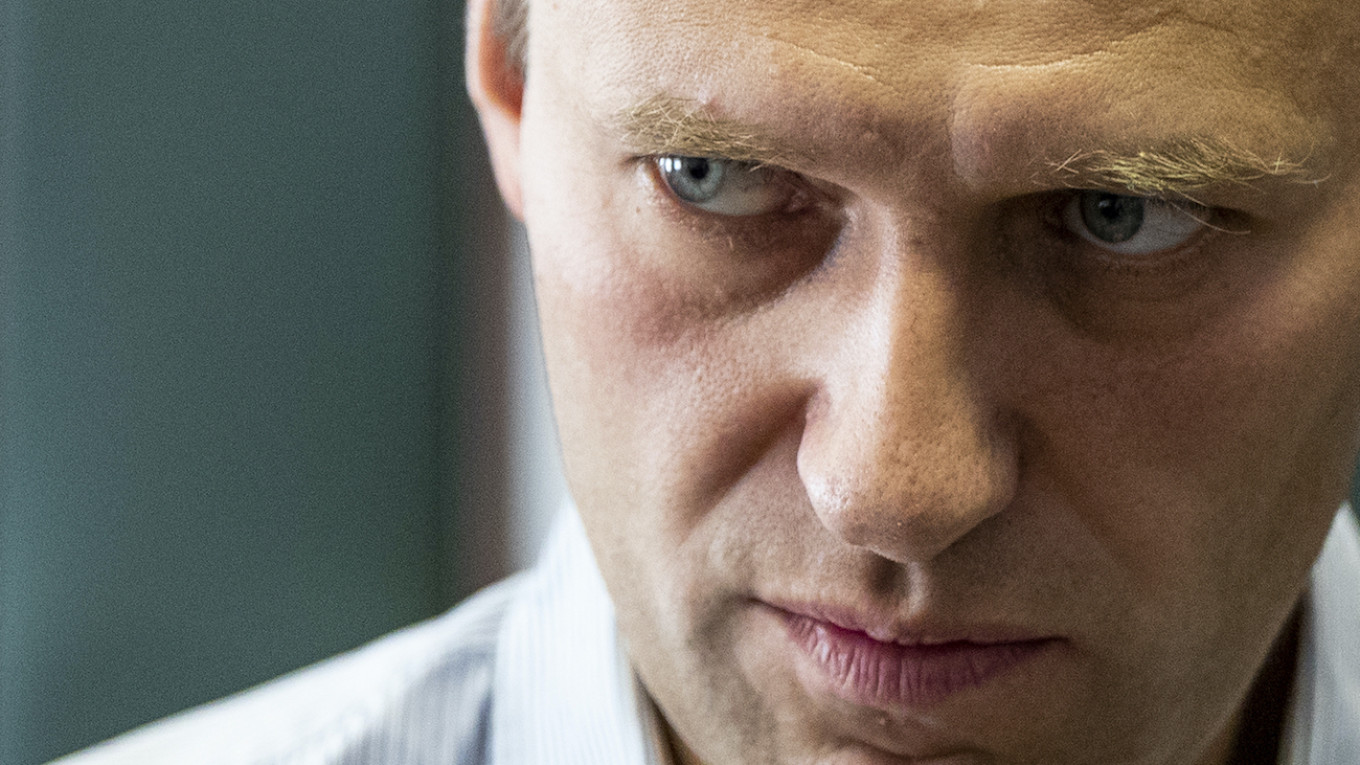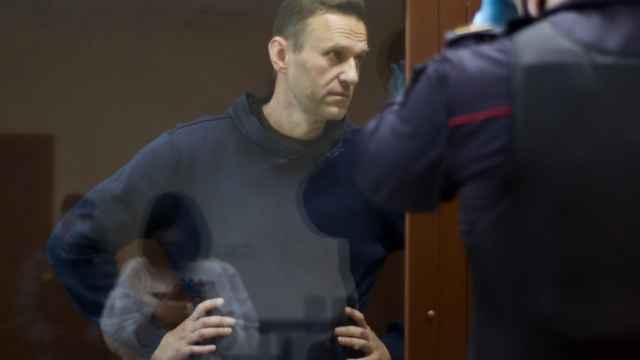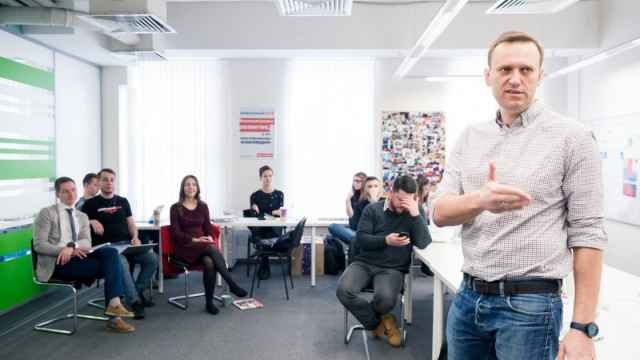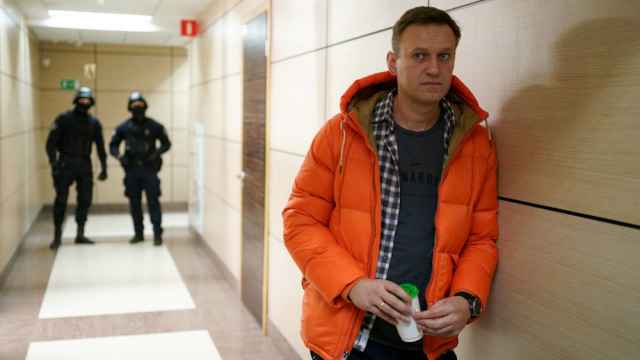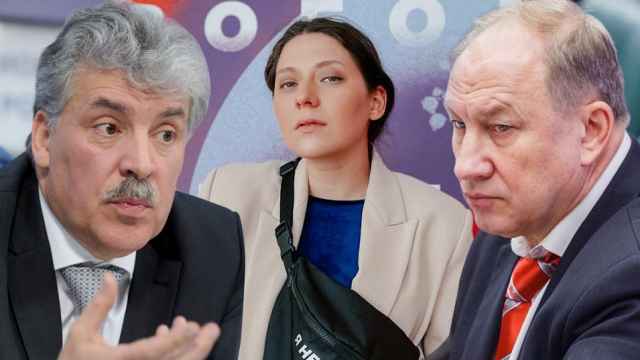In his first press interview after being poisoned, the Russian opposition activist Alexey Navalny told Germany’s Der Spiegel magazine that President Vladimir Putin was personally behind the attempt on his life, and that the Russian leadership won’t stop poisoning people any time soon.
Putin’s press secretary Dmitry Peskov’s response to Navalny’s comments on Oct. 1 was unexpectedly blunt and expansive. “We consider some of the assertions made in the aforementioned publication extremely offensive and also unacceptable,” he told journalists.
Peskov also repeated State Duma Speaker Vyacheslav Volodin’s claims that Navalny “is working with the intelligence agencies and state authorities of Western countries,” and went as far as to specify:“Specialists from the U.S. CIA are working with him right now.” In fact, Peskov added, Navalny’s comments in his interview with Der Spiegel — and indeed all his public activity — were dictated to him by those same CIA specialists.
Peskov’s vitriolic attack on Navalny on two fronts — calling him a CIA puppet and accusing him of insulting the president — is a continuation of attempts to marginalize Navalny, despite the drastically changed circumstances.
In a phone call to French President Emmanuel Macron following the announcement that Navalny had been poisoned with the deadly nerve agent Novichok, Putin reportedly tried to dismiss Navalny as a minor fraudster and internet troublemaker who blackmails businessmen and officials. From details of the conversation leaked to Le Monde newspaper, it seems Macron made it clear that he didn’t accept the Russian leader’s version, so Putin realized he needed a new one.
The fact that Navalny has never served a lengthy prison sentence (though he has spent many brief spells in detention and was earlier given a suspended sentence) fits in with this logic of marginalization. Back in the early 2000s, the tycoon Mikhail Khodorkovsky was seen as a serious and powerful enemy, who had parliamentary deputies and money behind him, and, accordingly, he spent a decade in prison. But the Kremlin doesn’t want to turn Navalny into some kind of hero, and has said so openly. This also explains why Putin and other senior officials hardly ever refer to Navalny by name. Recent events, however, have turned Navalny into something more than a hero. After all, he was nearly killed and then resurrected, which takes his messianic mission to a whole new level.
His poisoning has elevated Navalny to a special place, making him at least temporarily above criticism from the Russian intellectual circles with which he previously often bickered. And it goes without saying that an attempt to silence any opponent at the cost of their life boosts the influence of that opponent. A “minor fraudster” who has been visited in the hospital by the German chancellor no longer seems so minor after all.
The old methods are proving less effective in forcing Navalny outside the already narrow Russian political space. Putin, who believes that enemies deserve respect, while traitors do not, doesn’t want to do Navalny the honor of giving him the status of an enemy. Instead, he wants to lump him in with the traitors, who are worse than enemies.
Navalny is too dangerous to be granted the status of enemy. The late politician Valeria Novodvorskaya, for example, who had been conferred the status of enemy, used to say appalling things about Putin and Russia, but they were ideological, abstract convictions, and furthermore had an ultraliberal bent that meant she had no chance of consolidating a majority around her or winning power. And perhaps the same could be said, to a lesser extent, of most of Putin’s liberal critics who for a long time were considered the opposition.
Navalny has never been liberal enough for Russia’s liberal intelligentsia, and is far from a dogmatic: in other words, he is someone with an intentionally indeterminate broad support base that could be drastically increased by any favorable turn of events. Following his poisoning, for example, both his approval and disapproval ratings have notably risen, and with them public awareness of him. And unlike many older opposition activists, Navalny fights not for the right to criticize Putin or for freedom of speech or assembly, but for power itself.
It’s this increased visibility and unwitting mythologization brought about by the poisoning that have prompted the accusations that Navalny is a CIA agent parroting a foreign paymaster’s charges against Putin personally. After all, a real politician, even an enemy one, works independently, while a secret agent, who merely repeats what they are told by a foreign intelligence agency, is by definition a traitor. And so, in just one stroke, Navalny goes from being an enemy to a traitor, and his status is diminished. The accusations of insulting the president have precisely the same effect. Insulting someone is petty insolence; major players don’t stoop to such things.
Navalny’s treachery also appears to consist of failing to reciprocate the steps taken on his behalf by the authorities—namely, allowing him to be flown to Germany for treatment. The Kremlin’s logic appears to be that since Putin gave the go-ahead for the medical evacuation, Navalny could at least broaden his circle of suspects. After all, many independent analysts—even Western ones—have done so: the theory that Putin is personally to blame is just one of several. But for Navalny, it was the only possibility, and one that he voiced just when he had the world’s attention and trust. This blanket refusal to play ball with the authorities, even after they tried to put right their own blunder (or that of someone very close to them) may also be seen as treachery and taken quite personally by those in power.
There is also an element of a threat in Peskov’s condemnation of Navalny. After all, both working with foreign intelligence agencies and insulting the president are punishable offenses under Russian law.
The accusations of CIA involvement are, incidentally, insulting for German Chancellor Angela Merkel, too. The implication is that American agents are at work in the best hospital in Berlin, under the personal protection of the head of the German government, and that German doctors and journalists are turning a blind eye to it. And even supposing Navalny receives his instructions by email, it still means that Merkel paid a visit to a minor foreign spy. It looks like Merkel’s role as the chief moderator between Russia and Europe is well and truly over.
This article was first published by the Carnegie Moscow Center.
A Message from The Moscow Times:
Dear readers,
We are facing unprecedented challenges. Russia's Prosecutor General's Office has designated The Moscow Times as an "undesirable" organization, criminalizing our work and putting our staff at risk of prosecution. This follows our earlier unjust labeling as a "foreign agent."
These actions are direct attempts to silence independent journalism in Russia. The authorities claim our work "discredits the decisions of the Russian leadership." We see things differently: we strive to provide accurate, unbiased reporting on Russia.
We, the journalists of The Moscow Times, refuse to be silenced. But to continue our work, we need your help.
Your support, no matter how small, makes a world of difference. If you can, please support us monthly starting from just $2. It's quick to set up, and every contribution makes a significant impact.
By supporting The Moscow Times, you're defending open, independent journalism in the face of repression. Thank you for standing with us.
Remind me later.



